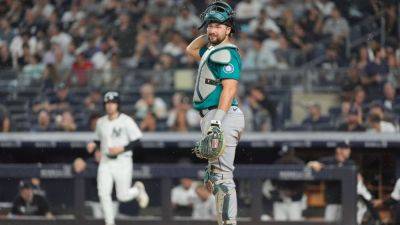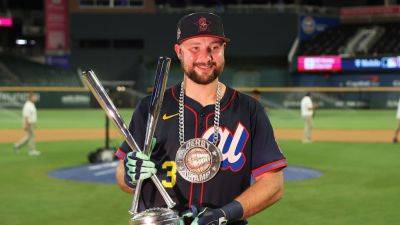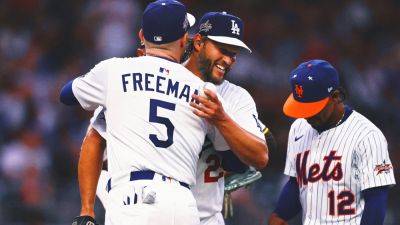Debunking MLB's "Home Run Derby Curse" - ESPN
Baseball loves its superstitions: Pregame chicken dinners, rally caps, never referencing an active no-hitter, purposely avoiding (or stepping on) the foul line.
It's easy, therefore, to fall prey to belief in one of our game's more modern hexes: The Home Run Derby Curse.
It's a jinx that has befallen such past participants as Bobby Abreu (2005), David Wright (2006) and Todd Frazier (2015), and its negative influence concerns fans and fantasy managers alike of Cal Raleigh, James Wood and Junior Caminero, three of this year's competitors.
There's just one problem: This «curse» is complete hogwash.
Create a league and customize league size, scoring and rules to play in the league you want to play in.
Create a league today!
To explain, the other thing us baseball-ites seem to love is cherry-picking examples that suit our arguments for such wild theories. While it's true that Abreu, Wright and Frazier each hit at least 12 fewer home runs and registered a wOBA at least 50 points lower after participating in the Home Run Derby than before it in those seasons, the larger sample reflects no rhyme or reason to the effects of participation on players' second-half performance. Moreover, closer examination reveals that participants' second-half statistical declines are no more severe — and, in fact, less so — than that of similar power hitters who opt to skip the midsummer contest, like Aaron Judge this year.
First, the facts: Across the past nine seasons that featured a Home Run Derby, spanning the Statcast era, participants in the midsummer contest averaged 6.5 fewer home runs after the break than before it. This decrease looks significant, but it's tempered by the fact that baseball typically schedules its All-Star break








